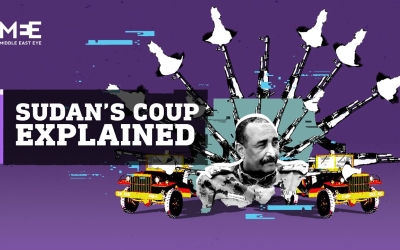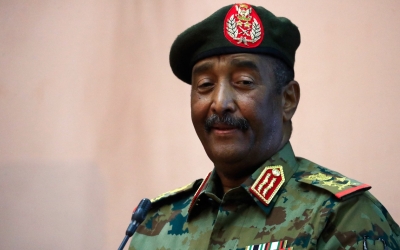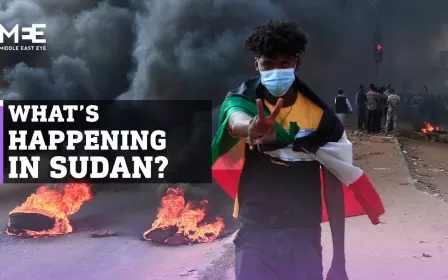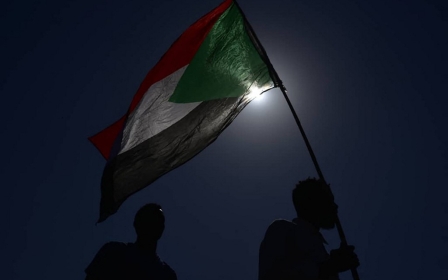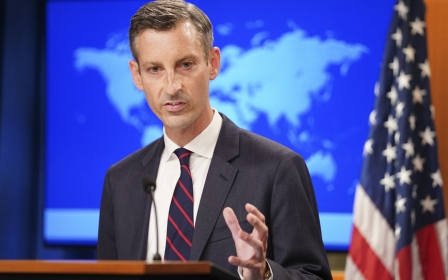Sudan coup 2021: Ambassadors unite to denounce takeover and back protests
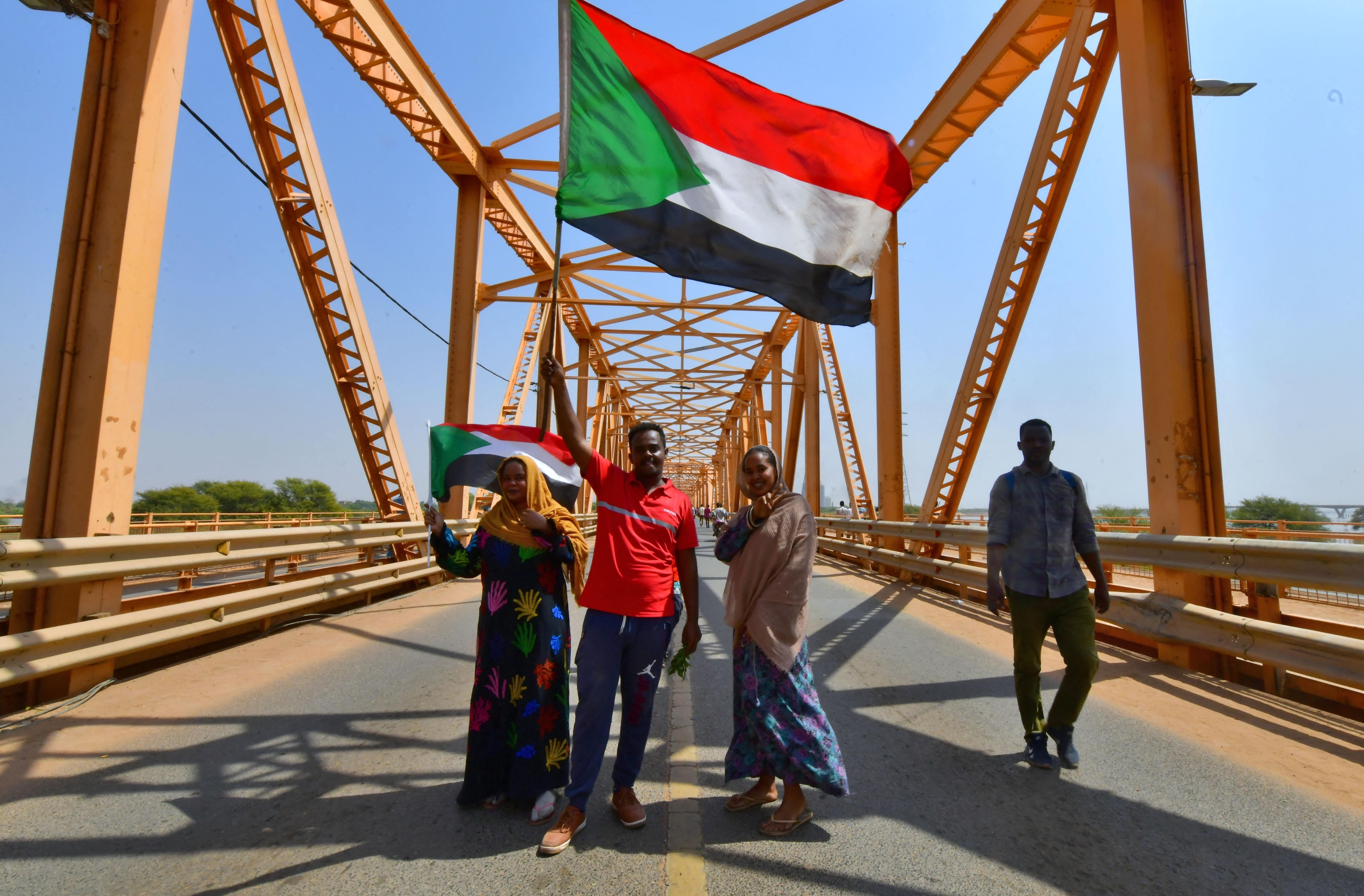
A growing number of Sudanese diplomats have united to reject Monday's coup, declaring their embassies safe havens “for the Sudanese people” as a coordinated civil disobedience campaign continues across the country.
In response to the power grab, a group of 41 current and former Sudanese ambassadors and diplomats, in countries including the US, Belgium, France, the UAE, Qatar, Turkey, Canada and at home in Sudan, signed a letter addressed to “our heroic people” on Wednesday.
'We condemn in the strongest terms the brutal military coup against your glorious revolution'
- statement from Sudanese diplomats
“We condemn in the strongest terms the brutal military coup against your glorious revolution,” the statement read, adding that they declared their "complete alignment with your heroic resistance”.
Footage shared online showed Sudanese armed forces fanning out across the capital on Tuesday, with protesters waving flags, chanting slogans and blocking roads leading to Khartoum.
The protests, which have seen at least nine people killed and more than 150 wounded at the hands of the military and the notorious paramilitary Rapid Support Forces (RSF), were sparked after the army placed Prime Minister Abdalla Hamdok under house arrest in the early hours of Monday morning. He was allowed to return home on Tuesday.
Protesters have remained in the streets despite some sustaining horrific injuries, as captured in videos shared online.
“If the situation doesn’t improve, I'll quit,” Abdelrahim Ahmed Khalil, Sudan’s ambassador to Belgium and the European Union, who has been a civil servant for over four decades, told Middle East Eye.
“I’ll quit and go back to my country and live like normal people...we are not going to serve another military dictatorship in Sudan.”
He added that his fellow signatories, which started as a group of just four ambassadors, shared this conviction.
"Yes, I think that if the situation doesn't change they will sack us, or we will leave by ourselves," Usama Nuddallah, Sudan's ambassador to South Africa, told MEE.
Sudan's ambassadors have "a tough job", Cameron Hudson, a senior fellow at the Atlantic Council, told MEE.
"They are in the difficult position of sometimes having to explain why the military is doing what it is doing and explaining Sudanese politics to foreign audiences," he said.
"That can be a very fine line - so I think it's important that they put themselves on one side of that line now."
'Civil war averted'
Abdel Fattah al-Burhan, the head of the Sudanese army, announced on Monday that he had disbanded the government and declared a state of emergency.
Addressing the country on Tuesday, Burhan defended his actions, insisting that the seizure of state power was meant to fulfil the people's demands and revive the 2019 uprising that toppled longtime ruler Omar al-Bashir.
He said the army had no choice but to sideline politicians who were inciting against the armed forces and claimed the military's action did not amount to a coup.
"The dangers we witnessed last week could have led the country into civil war," he said, an apparent reference to demonstrations against the prospect of a coup.
The army had been due to hand over the leadership of the Sovereign Council, a powerful body that controls the sub-Saharan nation, to civilians in the coming weeks, but the country's democratic transition appears to be unravelling fast.
Monday's coup has been condemned internationally, with western and regional powers, including the US, calling on the military to release all captured political leaders.
On Wednesday, the European Union delegation in Khartoum condemned the coup on behalf of the EU, UK, USA and other Western embassies, writing, “we…urgently request to be able to meet with the prime minister.”
“The attempt to disturb the democratic transition is unacceptable, totally,” another signatory to Tuesday’s statement, Ali Ibn Talib Abdelrahman Mahmoud, the ambassador of Sudan to the United Nations and Switzerland, told MEE.
“We stand in solidarity with the brave people of Sudan.”
Middle East Eye propose une couverture et une analyse indépendantes et incomparables du Moyen-Orient, de l’Afrique du Nord et d’autres régions du monde. Pour en savoir plus sur la reprise de ce contenu et les frais qui s’appliquent, veuillez remplir ce formulaire [en anglais]. Pour en savoir plus sur MEE, cliquez ici [en anglais].


